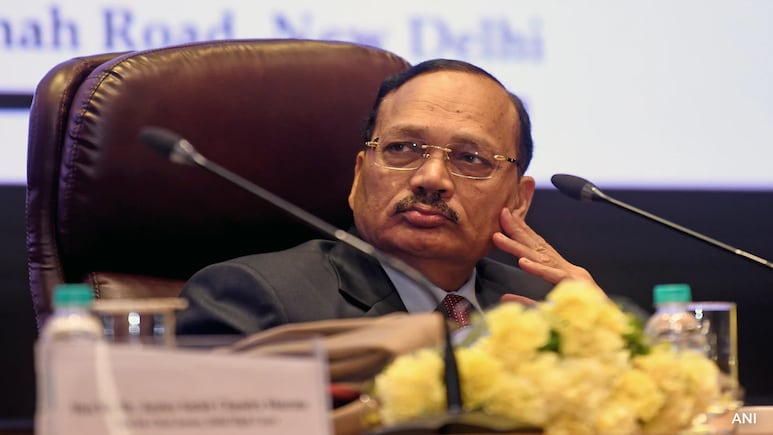
Seniormost Supreme Court judge Surya Kant on Thursday said the judiciary needs to evolve and innovate to deal with new challenges like digital exclusion, displacement, climate vulnerability and transnational migration, or it will face the risk of becoming its own shadow.
Justice Kant, who is also the executive chairman of the National Legal Services Authority (NALSA), was delivering the Inaugural BASL Human Rights Oration in Colombo on the theme of "Strengthening a Legal Aid System to Achieve Human Rights of Marginalised and Minorities: The Indian Case Study".
Referring to justice as a "living promise", he said, "The story of India's legal-aid movement is, at its heart, the story of a democracy's conscience. It is proof that even in a vast and complex society, justice can be made real when vision is matched by institutional will." "Yet, this is not a story of completion. As new challenges emerge, such as digital exclusion, displacement, climate vulnerability and transnational migration, our task is to innovate further, to modernise outreach and to deepen inclusion. Justice must evolve with society, or it risks becoming its shadow," Justice Kant said.
He said from the ancient precepts of "dharma" to the modern architecture of the NALSA, India's journey reflects an enduring faith in human dignity and an unbroken commitment to the idea that justice must reach the last person first.
"Each time a prisoner regains freedom through a legal-aid petition, each time a widow receives her pension after years of neglect and every time a child in conflict with the law is guided towards reform instead of retribution -- the Constitution's promise breathes anew," he said.
Justice Kant said for Sri Lanka and across the Commonwealth, India's experience offers not a model to be imitated, but a vision to inspire.
"The belief that every person, regardless of wealth or status, is entitled to the full protection of the law is not merely Indian, it is universal. But India's experience affirms that institutionalising that belief -- making it work in practice, every day, for millions -- is possible and imperative," he said.
Each country must craft its own system anchored in local realities, yet inspired by a shared conviction that legal aid is the first line of defence against the erosion of human rights, the apex court judge said.
"When justice becomes truly accessible -- when every citizen, regardless of means, can stand tall before the law -- then, and only then, can we say that freedom has fulfilled its true purpose," he said.
"Justice, after all, is not a destination. It is a journey -- a collective journey of nations, institutions and hearts. And in that journey, India stands ready, not only as a participant, but as a partner and pioneer, committed to ensuring that the light of human rights shines undimmed across our world," Justice Kant said.
He described access to justice as "not a privilege of the powerful, but a sacred duty of the State and society alike."
"The endeavour to secure justice in India for the underprivileged transcends legal obligations and it is a test of our collective conscience," Justice Kant said, underscoring that the Indian legal-aid framework is designed to ensure that no citizen is denied justice on account of poverty or social disadvantage.
He referred to the judiciary's proactive role in expanding constitutional guarantees through landmark rulings, such as Hussainara Khatoon Vs State of Bihar, which recognised free legal representation as part of the right to life.
"These judgments transformed ideals into living realities, converting the right to legal aid into a cornerstone of India's democratic fabric," Justice Kant observed.
Elaborating on India's institutional mechanisms, he detailed the expansive reach of the NALSA, established under the Legal Services Authorities Act, 1987.
With 37 state legal services authorities, 709 district authorities, more than 2,000 taluka committees and over 50,000 trained paralegal volunteers, India operates one of the largest legal-aid networks in the world, the Supreme Court judge pointed out.
He underscored the growing role of young lawyers and law students in India's legal-aid ecosystem through legal-aid clinics, paralegal training and the Panel Lawyer system that currently includes more than 34,000 lawyers.
"India's youth have embraced legal aid not as charity, but as responsibility," Justice Kant said, noting that this inter-generational commitment ensures that "the Constitution's promise breathes anew every time a citizen's rights are restored."
(Except for the headline, this story has not been edited by NDTV staff and is published from a syndicated feed.)
Track Latest News Live on NDTV.com and get news updates from India and around the world

